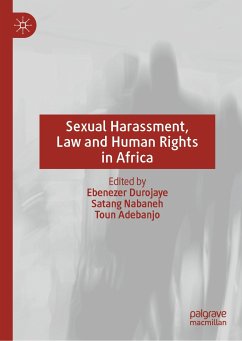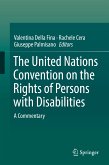--Dr Abiola Akiyode-Afolabi, University of Lagos & Executive Director, Women Advocate Research & Documentation Centre, Nigeria
"This book takes an intersectional approach to human rights by exploring the intersection of gender, disability, refugee status, and social class, and in so doing, offers an invaluable contribution to the literature on women's human rights in Africa."
--Prof Johanna Bond, Dean Faculty of Law Rutgers University, USA
"It adopts a very unique-multidisciplinary perspective to sexual harassment by analysing it using the human rights based approach, something that has been lacking from the Global South!"
--Dr Linet Sithole, Law Lecturer at Africa University, Zimbabwe
This book delves into the endemic and pervasive issue of sexual harassment in Africa, examining it as a gendered expression of power and a gross violation of human rights. It explores sexual harassment in various sectors, including domestic work, academia, and the informal economy, across a range of African countries. The book also highlights the sexual harassment experienced by vulnerable populations, such as internally displaced people, people with disabilities, and women and girls traveling by air. With a keen focus on the intersection of law, feminism, and human rights, the book analyzes the role of the courts and national human rights institutions in addressing sexual harassment, drawing lessons from other jurisdictions. This book is a must-read for researchers, policymakers, and civil society organizations interested in gender power relations and women's rights in Africa and beyond.
Ebenezer Durojaye is Professor and Head of the Socio-Economic Rights Project at the Dullah Omar Institute, University of the Western Cape, South Africa.
Satang Nabaneh is Research Professor of Law at the University of Dayton School of Law and the Human Rights Center's Director of Programs.
Adetoun Adebanjo is Legal Researcher and Consultant in Queensland, Australia.
Dieser Download kann aus rechtlichen Gründen nur mit Rechnungsadresse in A, B, BG, CY, CZ, D, DK, EW, E, FIN, F, GR, HR, H, IRL, I, LT, L, LR, M, NL, PL, P, R, S, SLO, SK ausgeliefert werden.









